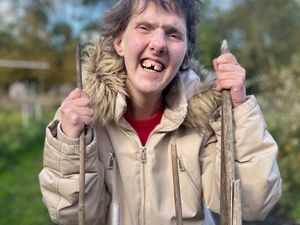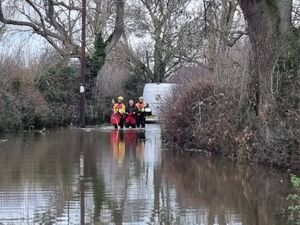'Kind' scientist who died at railway crossing 'could have still been with us' with better mental health treatment
The family and friends of an “accomplished scientist” and hospital volunteer who took her own life at a railway crossing suggested there were “opportunities missed” to possibly save her life.
Nicola Peet, aged 69, was found dead at the Weston Rhyn crossing on July 18 this year after struggling with her mental health.
However her sister, Dr Angela McArthur, best friend Claire Bishop and friends who worked with her at Robert Jones and Agnes Hunt Orthopaedic Hospital in Gobowen, raised concerns at her inquest, which was held at the Guildhall in Shrewsbury on Thursday (December 5).
Ms Peet, who was born in Oxford but lived in Station Road, Weston Rhyn, was found at the crossing at around 7.23am and pronounced dead shortly after by a paramedic.
A toxicology report found she had low levels of the anti-depressant drug sertraline in her system.
Statements read from her sister, who attended the hearing via video link, were read out by John Ellery, senior coroner for Shropshire, Telford and Wrekin.
She described Ms Peet as “extremely intelligent” and “musically gifted”, adding that she had a degree in immunology and drove coaches.
“She was a very kind person and would help people when she could,” Dr McArthur added.
“She did have mental health issues. She didn’t realise how many people liked her,” Dr McArthur said, adding that she had received several messages from people upset by her death.
It was confirmed that Ms Peet was struck by a train the night before she was found at around 10.34pm.
Mr Ellery recorded a conclusion of suicide, and asked if those in attendance wished to say anything.
Dr McArthur said she had hoped a review of mental health services who had dealings with her sister would have been available in time for the inquest.
“They said last week that the report wasn’t ready. It was quite disappointing.
“It was obvious that she [Ms Peet] was actively seeking assistance.”
She added that she thought if her sister had the right intervention from mental health services, “she may still be with us today”.
Ms Bishop added: “I felt as if there were opportunities missed that could have helped her.”
Dr McArthur also expressed her thanks to the British Transport Police for officers' help.
“They do a very difficult job in the most harrowing of circumstances,” said Mr Ellery, thanking Dr McArthur for her contribution.
*When life is difficult, Samaritans are here – day or night, 365 days a year. You can call them for free on 116 123, email them at jo@samaritans.org, or visit www.samaritans.org for more.





